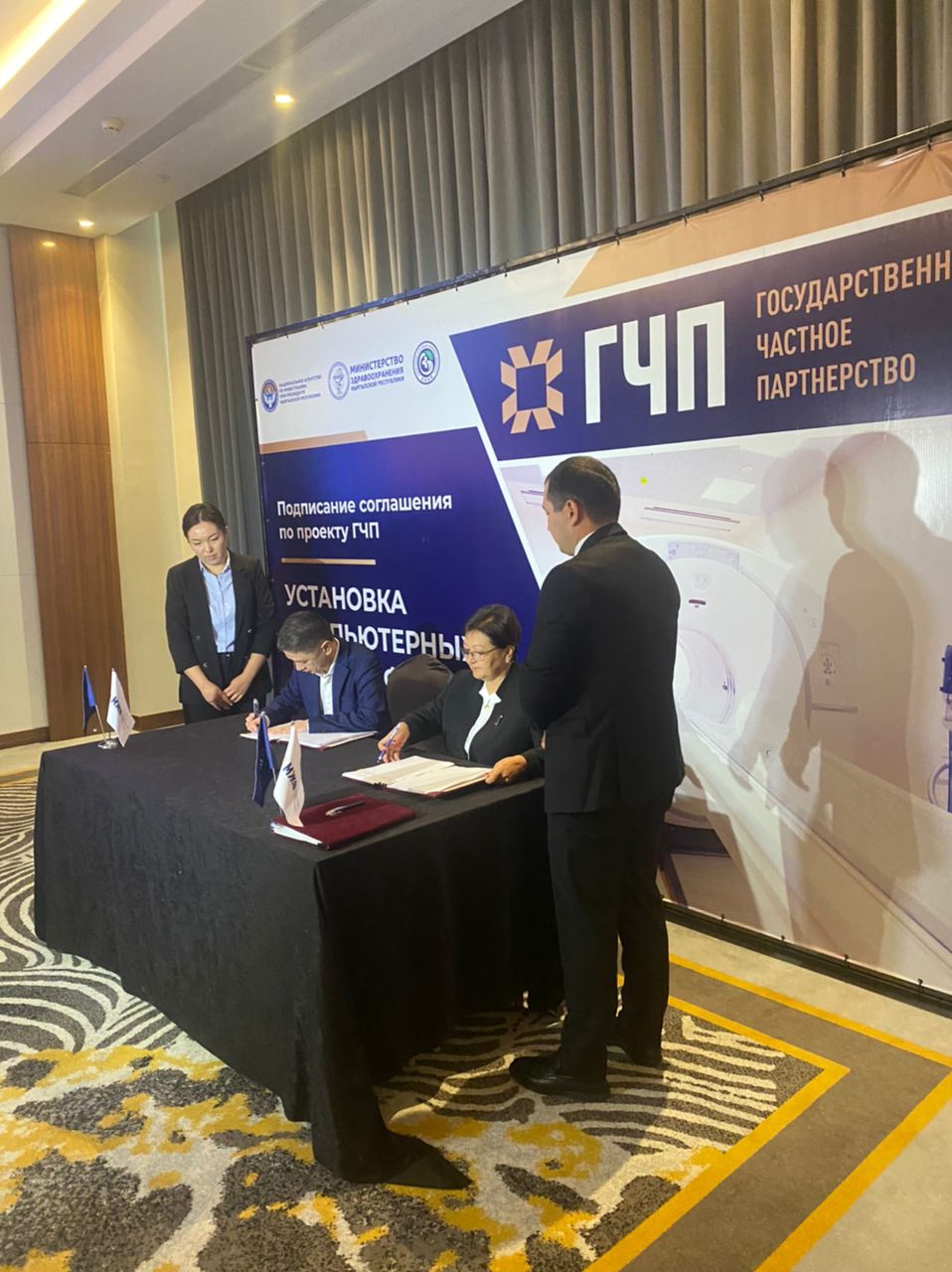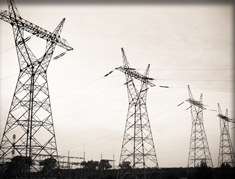K&A is glad to announce that application for Gulnara A. Kalikova Scholarship for 2024-2025 academic year is now open. We welcome qualified applicants from all universities in Kyrgyzstan to apply. Please follow the link below to learn more about the scholarship and eligibility criteria. (link)
SUBSOIL USE IN THE KYRGYZ REPUBLIC:
10 FREQUENTLY ASKED QUESTIONS
1. Who holds the title to subsoil in the Kyrgyz Republic?
Subsoil is the exclusive property of the Kyrgyz Republic and is under special protection and control of the state. Subsoil users acquire ownership of the extracted minerals from the moment of extraction in the manner provided by the law.
2. How exploration and mining rights are granted?
The law provides that subsoil use rights can be granted based on:
• License;
• State registration;
• Concession agreement;
• Production sharing agreement.
3. What are the main terms of subsoil use license and license agreement?
License is a document issued by the Ministry of Natural Resources, Ecology and Technical Supervision of the Kyrgyz Republic to certify the right to use the subsoil area. The license agreement is an integral part of the license. The majority of subsoil users in the Kyrgyz Republic operate based on a license. The law sets forth the following types of subsoil use licenses:
• prospecting license issued for a term of up to 3 years with possibility of extension for up to 2 years according to the technical design document;
• exploration license issued for a term of up to 4 years with possibility of extension for up to 3 years according to the technical design document;
• mining\development license issued for a term of up to 20 years with possibility of extension until depletion of mineral reserves;
• groundwater withdrawal and use license issued for a term of 10 years with possibility of extension;
• non-exploration and non-mining operating license issued for a term specified in the technical design document with possibility of extension for a term specified in the adjusted technical design document.
Depending on the significance of the mining/exploration license area, the license can be granted based on:
• tender;
• auction;
• first come, first served method;
• decision of the Cabinet of Ministers of the Kyrgyz Republic.
A tender is held to grant a license for subsoil areas of national significance based on decision of the Cabinet of Ministers of the Kyrgyz Republic. Currently, there are 34 deposits listed in the register of subsoil areas of national significance, including the tenderable areas of ore deposits (Kumtor, Unkurtash), non-ore deposits (Aksai, Naukat), and coal deposits (Tuyk-Kargasha, Tegene).
An auction is held to grant a license for subsoil areas listed in the register of auctionable subsoil areas, which is formed and approved by the Ministry of Natural Resources, Ecology and Technical Supervision of the Kyrgyz Republic based on the criteria established by the Cabinet of Ministers of the Kyrgyz Republic.
A first come, first served method is used to grant a license for:
• subsoil areas other than those licensable through tenders or auctions;
• subsoil areas other than those covered by exploration and mining licenses.
4. Which activities can be conducted under state registration?
State registration is required for the following activities:
• Scientific subsoil survey conducted according to the approved program;
• Artisanal and small-scale mining.
State registration of scientific subsoil survey conducted according to the approved program is made by the Ministry of Natural Resources, Ecology and Technical Supervision of the Kyrgyz Republic.
State registration of artisanal and small-scale mining is made by the local state administration authorities. That said, artisanal and small-scale mining can be carried out only by registered individual entrepreneurs who mine minerals using hand tools or washing devices with a capacity of no more than 2 m3 of rock per hour, using exclusively gravity concentration method to extract gold from sand without using highly toxic substances (cyanidation, amalgamation, etc.).
5. What is Concession?
Concession is a form of subsoil use right arising from the concession agreement between the Cabinet of Ministers of the Kyrgyz Republic and/or the competent subsoil use authority and the subsoil user, whereby the subsoil user is granted the right to engage in exploration and mining activities subject to the terms and conditions of the concession agreement. Under the current legislation, concessions are awarded by decision of the Cabinet of Ministers of the Kyrgyz Republic based on results of the tender. Typical concession periods range between 5 and 50 years. Currently, Kumtor is the only largest subsoil use concession in the Kyrgyz Republic.
6. What the main terms of the Production Sharing Agreement?
Production sharing agreement (PSA) is an agreement whereby the Cabinet of Ministers of the Kyrgyz Republic grants exclusive mining rights to the subsoil user for a term not exceeding 10 years, and the subsoil user undertakes to carry out mining activities at its own expense and risk. PSA must describe how the contracting parties will share the production between them. One of the contracting parties to the PSA must be the state represented by the Cabinet of Ministers of the Kyrgyz Republic or other agencies authorized thereby. If the other contracting party to the PSA is a foreign individual or entity, the PSA must be ratified by the Jogorku Kenesh of the Kyrgyz Republic. After the signing of the PSA, the investor will be granted the license in the manner provided by the law. With some exceptions, the PSA can be awarded through tender or auction. Currently, there are no subsoil use projects implemented under the PSA.
7. Which state authority regulates and controls the subsoil use operations in the Kyrgyz Republic?
The Ministry of Natural Resources, Ecology and Technical Supervision of the Kyrgyz Republic is the main authority responsible for regulation and control of subsoil use operations in the Kyrgyz Republic. It performs the following functions and tasks relevant to subsoil use:
• implements the state subsoil use policy;
• establishes and maintains the State Subsoil Fund, the State Balance of Mineral Reserves, and the State Cadastre of Deposits and Mineral Occurrences;
• grants, suspends and terminates subsoil use rights;
• performs expert evaluations of mining and exploration projects, exerts control over compliance with subsoil use and protection requirements by exploration and mining projects;
• ensures the conduct of comprehensive geological surveys of the territory of the Kyrgyz Republic in order to identify new mineral deposits, attracts investments in the subsoil use sector;
• makes calculations and controls the collection of tender or auction participation fees and subsoil use payments;
• issues technical expert opinions on the import/export of goods, ores, concentrates, precious metals;
• supervises and controls compliance with the subsoil use, exploration and mining legislation, etc.
8. How land use rights are granted to subsoil users?
The grant of the subsoil use right (license, PSA, concession agreement) does not give rise to the land use right. After obtaining the subsoil use right, the subsoil user must obtain the land use right over the license or concession area within the term provided by the law.
At the stage of geological survey (prospecting and exploration activities), the subsoil user is not required to obtain the land use right, but it has to receive the land owner's written consent to geological survey.
The land plots intended for mining operations and industrial/infrastructure construction projects must be transferred by the land owner to the subsoil user for temporary use. The land use right must be confirmed by the title deeds or other land documents such as the resolution granting the land plot, the lease agreement, the certificate of temporary use right over the land plot for the period of validity of the subsoil use right.
9. Which taxes shall be paid by the subsoil users?
As a rule, subsoil users in the Kyrgyz Republic are subject to general tax regime and must report and pay the following taxes:
• profit tax (10%);
• income tax (10%);
• VAT (generally 12%, for some operations 0% or 12%);
• excise tax (varies depending on type, price or volume of excisable goods);
• sales tax (1% - 5%);
• tax on income derived from mining operations (1% - 30% depending on world prices per troy ounce). This tax is charged on the income derived from the production and sale of ores, gold concentrates, silver, copper, antimony, mercury, tungsten and tin, as well as gold alloy and refined gold, finished goods made of silver, copper, antimony, mercury, tungsten and tin. If the tax on income derived from mining operations is applicable, the income tax will not be charged;
• bonus (a one-time payment for the right to engage in prospecting, exploration and mining operations). Bonus is payable when obtaining the subsoil use rights, increasing the area and/or reserves, changing the ownership and in other cases. The bonus rate is established by the Cabinet of Ministers of the Kyrgyz Republic;
• royalty (recurring payments for the right to engage in mining and/or groundwater withdrawal (extraction) operations). Royalty rates are established in the Tax Code and range from 1% to 12% depending on the type of minerals.
Additionally, subsoil users must make non-tax compulsory payments such as:
• License retention fee (the fee charged at the rate set by the Cabinet of Ministers of the Kyrgyz Republic depending on the type of mineral, the type and year of license use and the size of the license area). This fee is payable annually (for the first year of use) and quarterly (for the second and subsequent years of use).
• Local infrastructure contribution charge (the fee charged pursuant to the local socio-economic development programs). This fee is payable by subsoil users at the stage of mining on a monthly basis at the rate of 2 percent of the proceeds from the sale of minerals, excluding indirect taxes.
10. What are the grounds and procedure for suspension and termination of subsoil use rights based on a license?
The subsoil use right (license) may be suspended by decision of the licensing commission under the Ministry of Natural Resources, Environment and Technical Supervision of the Kyrgyz Republic for up to 3 months in the following cases:
1) violation of subsoil protection, environmental and industrial safety requirements established by the law, which pose a direct threat to life or health of people working or residing in the area affected by subsoil use operations;
2) failure to submit exploration/mining status reports and mineral reserves movement reports within the term provided by the law;
3) submission of exploration/mining status reports and mineral reserves movement reports containing inaccurate information;
4) failure to comply with the requirement to accumulate funds for reclamation activities;
5) failure to meet the bonus and/or license fee payment deadlines;
6) failure to notify the competent subsoil use authority within the prescribed period about change in control or ownership of licensee, if such change entails the payment of bonus under the tax law of the Kyrgyz Republic.
The subsoil use right (license) may be terminated (annulment of license) by decision of the licensing commission under the Ministry of Natural Resources, Environment and Technical Supervision of the Kyrgyz Republic in the following cases:
1) relinquishment of the subsoil use right by the subsoil user;
2) expiration of the subsoil use license, unless the licensee timely files a license extension or transformation request;
3) performance of works without a technical design document approved by all necessary expert reviews and/or without a license agreement for performance of works;
4) failure to timely address the causes of suspension of subsoil use right;
5) performance of subsoil use operations during the period of suspension;
6) failure to submit information or submission of inaccurate information about ultimate beneficial ownership of the subsoil user;
7) failure to comply with the terms of the license agreement for performance of design works for more than 2 years, except for licenses for subsoil areas of national significance awarded through tender;
8) engaging in the activities (works) in violation of the Law of the Kyrgyz Republic "On Prohibition of Activities Related to Geological Survey for Prospecting, Exploration and Mining of Uranium and Thorium Deposits in the Kyrgyz Republic”;
9) non-payment or late payment of the fees and penalties stipulated in the tender terms and conditions;
10) violation, after a single extension, of the deadline for submission of the technical design approved by environmental, industrial and subsoil safety expert reviews.
Suspension or termination of the subsoil use right does not release the subsoil user from its obligation to undertake reclamation of mine land areas, disposal of mining property, mothballing and maintenance of mining property so that it remains in good repair, safe and secure to people and environment until its handover to the next subsoil user, and to convey geological information and primary documentation to the State Geological Information Fund.
Kalikova & Associates' Mining Practice
K&A's mining practice team has been advising for almost 20 years the largest exploration and mining, oil and gas companies, the government, state-owned enterprises, international organizations and financial institutions on mining, oil and gas related projects. Our mining team has unparalleled knowledge and understanding of local regulatory framework, business practice, governmental operations and community engagement.
We provide strategic guidance and comprehensive legal counsel to our clients in all aspects of their business, including mining concessions, licenses and permits, M&A, joint ventures, mining litigation, international arbitration, environmental protection, access to land, energy, and water resources, project finance and IPO.
For mining, oil & gas related inquiries please contact managing partner and Mining Practice leader Ms. Aicholpon Alieva.
Tel.: +996 312 66-60-60
E-mail: aalieva@ka.legal
ENERGY IN THE KYRGYZ REPUBLIC:
10 FREQUENTLY ASKED QUESTIONS
1. What are the regulatory requirements for construction and operation of hydro, solar or wind power plants (RES plants) in the Kyrgyz Republic?
The design, construction and operation of a RES plant require respective licenses and permits issued by the competent authorities. In particular, it is required:
• to obtain the right to construct the RES plant;
• to obtain the right to use the land plot upon which the RES plant will be constructed;
• to obtain all necessary construction licenses;
• to obtain licenses to sell electricity;
• to develop a feasibility study report on the RES plant construction project;
• to obtain an environmental impact assessment report;
• to execute a power purchase agreement and a grid connection agreement.
2. What land use rights are required to be obtained by a company wishing to construct a RES plant?
A company wishing to construct a RES plant must hold the right of ownership or temporary use of the land plot where the RES plant will be constructed. In addition, this land plot must be classified as the energy sector land and its intended use must be the construction of a RES plant.
Foreign entities defined by the Kyrgyz law as entities registered in the Kyrgyz Republic and having at least 20 percent of their shares owned or otherwise controlled by a foreigner may only have the right to lease the land for the period of up to 50 years. Foreign ownership of land is prohibited by law.
3. What licenses are required to be obtained by a contractor constructing a RES plant?
The contractors performing project design and construction works must hold a power plant design and construction license issued by the State Agency for Architecture, Construction and Housing Sector under the Cabinet of Ministers of the Kyrgyz Republic. The contractor must also be able to construct the RES plant with certain capacity (MW) and complexity which is determined by the level of responsibility indicated in the license. The design and construction license do not have an expiry date and are valid in the entire territory of the country.
The design license and the construction licenses are issued within 30 days from the date of filing the full set of documents required.
4. What is the license fee?
The license fee is 1,000 Kyrgyz Soms.
5. How can a company bid for the right to construct a new RES plant?
According to Kyrgyz law, the right to construct a new RES plant (except major electric power production facilities and main power transmission lines) must be granted through tender by the Ministry of Energy of the Kyrgyz Republic. If the cost of the project is more than 1 billion soms, the project must be awarded through direct negotiations. It is also possible to implement a RES project under an investment agreement concluded with the Cabinet of Ministers, in which case the tender is also not required.
The construction of major electric power production facilities1 must be undertaken in accordance with the National Energy Program or a separate resolution of the Cabinet of Ministers of the Kyrgyz Republic.
6. What government agency is authorized to regulate the operation of RES plants and what documents are required to operate a RES plant?
Under Kyrgyz law, the Ministry of Energy of the Kyrgyz Republic is authorized to regulate the operation of all RES plants. The companies generating electricity from RES are exempt from obtaining the electricity generation (production) license. However, if electricity is generated by a hydro power plant with an established capacity of over 30 MW, it will be necessary to obtain the respective license.
The companies intending to sell electricity must also obtain the electricity sale license from the Fuel and Energy Sector Department of the Ministry of Energy of the Kyrgyz Republic. The license is issued within 30 days from the date of filing the full set of documents required. The license does not have an expiry date and is valid in the entire territory of the Kyrgyz Republic.
7. Who is authorized to develop a feasibility study report on the RES plant construction project?
Before starting construction of any RES plant, it is necessary to develop a feasibility study (the "FS"), describing the location, capacity and other technical characteristics of the RES plant. To develop the FS, the customer (the owner of the land plot where the RES plant will be constructed) must execute a FS contractor agreement with an organization having relevant experience and qualification. Subsequently, on the basis of the FS, the design documentation for the construction of the RES plant will be developed.
8. What is a state environmental impact assessment report and what is its purpose?
A state environmental impact assessment report is a report issued by the Ministry of Natural Resources, Ecology and Technical Supervision of the Kyrgyz Republic, based on the findings from the review and assessment of the FS on the construction of the RES plant. The company wishing to construct a RES plant must obtain an environmental impact assessment report for each proposed project. This report is a prerequisite for implementing the project. If the report issued by the environmental protection authorities is negative, the construction of the RES plant will be prohibited.
9. Why do companies execute power purchase agreements and with whom are these agreements executed?
Pursuant to Kyrgyz law, any RES-generated power not used for personal consumption and not contracted to individual off-takers must be purchased by a power company determined by the designated authority which has concluded an appropriate contract, regardless of which power company's grid this RES plant is connected to. The Ministry of Energy, by its order, designated National Electric System of Kyrgyzstan JSC ("NESK") as a single offtaker who will purchase electricity from RES producers. During the grace period of 25 years, the tariff for RES electricity purchase by NESK will be set at 3.40 soms per 1 kWh multiplied by the coefficient of 1.3 (in total, 4.42 soms per 1 kWh). The tariffs for RES electricity will be set by the producer and consumer on a contractual basis.
10. Does a company need to execute a transmission agreement and, if so, with whom is such an agreement executed?
Kyrgyz law requires energy companies to execute electricity transmission agreements to ensure the transmission of electricity generated by the RES plant. The agreement must be executed with NESK which is the owner of the power distribution and transmission networks. Also, according to the law, the owner of RES plant must execute a service agreement with the Kyrgyz Electricity Settlement Center for the collection and processing of electricity metering data.
Kalikova & Associates' Energy Practice
K&A has vast experience in advising clients on the matters related to the development and financing of energy projects in Kyrgyzstan, as well as subsequent legal support of such projects. Our experience in the energy sector covers legal services related the creation and operation of joint ventures for the planning and construction of large, medium and small hydroelectric power plants, solar power plants and electrical networks, and transactions involving the purchase, sale, transmission, distribution and export of electricity.
For mining, oil & gas related inquiries please contact partner and Energy Practice leader Mr. Magomed Saaduev.
Tel.: +996 312 66-60-60
+996 777 96-04-18
E-mail: msaaduev@ka.legal
K&A is glad to announce that application for Gulnara A. Kalikova Scholarship for 2023-2024 school year is now open. We welcome qualified applicants from all universities in Kyrgyzstan to apply. Please follow the link below to learn more about the scholarship and eligibility criteria. (link)
This year, Kalikova & Associates (K&A) is celebrating the 17th anniversary of one of its underlying practice areas: the Energy Practice. K&A has vast experience in advising clients on the matters related to the development and financing of energy projects in Kyrgyzstan, as well as subsequent legal support of such projects.Our experience in the energy sector covers legal services related the creation and operation of joint ventures for the planning and construction of large, medium and small hydroelectric power plants and electrical networks, and transactions involving the purchase, sale, transmission, distribution and export of electricity. In light of the growing interest in renewable energy sources (RES), our legal team is also actively involved in the projects related to the improvement of legislation in the field of RES, as well as the planning and construction of RES plants, including solar PV.
On October 5-6, the Kalikova & Associates team took part in the International PPP Conference organized by the PPP Center under the National Investment Agency under the President of the Kyrgyz Republic with the support of international development partners such as ADB, UNECE, IFC and UNICEF. The conference was attended by more than 200 participants, including the Chairman of the Cabinet of Ministers of the Kyrgyz Republic, Mr. Akylbek Zhaparov, heads of government agencies concerned, international development partners, as well as international PPP experts. Magomed Saaduev, Partner and Head of PPP practice at K&A, made a presentation on the practical issues of preparing and implementing PPP projects in the healthcare sector. We congratulate the PPP Center, as well as all the speakers and participants of the conference for organizing such a high-level event. We are confident that the conference will serve as an impetus for further development of PPP mechanisms and implementation of many new successful projects in the Kyrgyz Republic.
We are happy to share great news! On September 14, 2022, the Ministry of Health of the Kyrgyz Republic and a private partner signed a PPP agreement on implementation of project on installation of computed tomography scanners in 6 public healthcare institutions.The successful implementation of the project by a private partner will help improving diagnostic performance, ensuring broader patient access to CT services in the regions where CT services were not available, reducing CT scan costs by saving money and time spent to travel to other regions and cities for CT services.From a legal point of view, the project was the first of its kind, complex and requiring legal and technical expertise and knowledge of the healthcare sector of the Kyrgyz Republic. The K&A's PPP practice group led by partner Magomed Saaduev and consisting of lawyers Azima Bokoshova, Eldiyar Raiymkulov and Madina Berdikulova represented the Ministry of Health and accompanied the project at all stages of the project cycle, from initiation of the project, preparation of the feasibility study and tender documents, holding the tender and negotiations to execution of the PPP agreement .We are grateful to the Ministry of Health of the Kyrgyz Republic and the PPP Center for the opportunity to make a feasible contribution to such an important project for the citizens of the Kyrgyz Republic and wish the teams of the Ministry of Health and the PPP Center further success in the implementation of the PPP agreement!


We are proud to announce that Nurbek Sabirov, Partner and Head of Litigation & Arbitration Practice at Kalikova & Associates, has been included in the database of the Panels of Conciliators and of Arbitrators of the International Center for Settlement of Investment Disputes (https://lnkd.in/dyGzB3Xu). This list is formed based on applications of the States Parties to the Washington Convention and includes the most eminent experts in the field of investor-state arbitration from various jurisdictions.
We sincerely congratulate Nurbek on such a significant achievement and wish him success in his new role!
K&A is glad to announce that application for Gulnara A. Kalikova Scholarship for 2022-23 school year is now open. We welcome qualified applicants from all universities in Kyrgyzstan to apply. Please follow the link below to learn more about the scholarship and eligibility criteria.(link)
On March 25, 2022, the Cabinet of Ministers of the Kyrgyz Republic adopted a resolution on public-private partnership issues in the Kyrgyz Republic, approving a number of subordinate legislative enactments in the field of public-private partnership (PPP), in particular:
(i) Regulation on procedure for development of PPP projects financed by the PPP Project Development Fund, setting forth the terms and conditions of development and selection of projects to be financed by the said Fund;
(ii) Regulation on awarding PPP projects by direct negotiation, setting forth the procedure for awarding PPP projects with an investment value of over KGS 1 billion without holding a tender;
(iii) Rules for holding a tender for PPP projects, setting forth the uniform procedure for holding a tender for selecting a private partner;
(iv) Regulation on procedure for state registration of PPP projects in the State Register of PPP Projects of the Kyrgyz Republic, setting forth the procedure for registration of projects by a designated PPP authority.
Furthermore, the above Resolution of the Cabinet of Ministers introduced a number of changes and additions to the respective subordinate legislation. The Resolution will take effect upon the expiration of 15 days from the date of official publication.
PPP/Infrastructure projects represent a dynamically growing and priority area of legal practice of Kalikova & Associates. Our PPP practice was one of the first in the country to deal with PPP issues and has solid experience in all phases of a PPP project: initiation, feasibility study, tendering, and implementation. Furthermore, the PPP practice lawyers are actively involved in the legislative drafting process through participation in various legal reform initiatives. We are always glad to share our experience and to contribute to the development of PPPs in the country. For more information, please feel free to contact K&A Partner and head of PPP practice, Magomed Saaduev (msaaduev@ka.legal).














